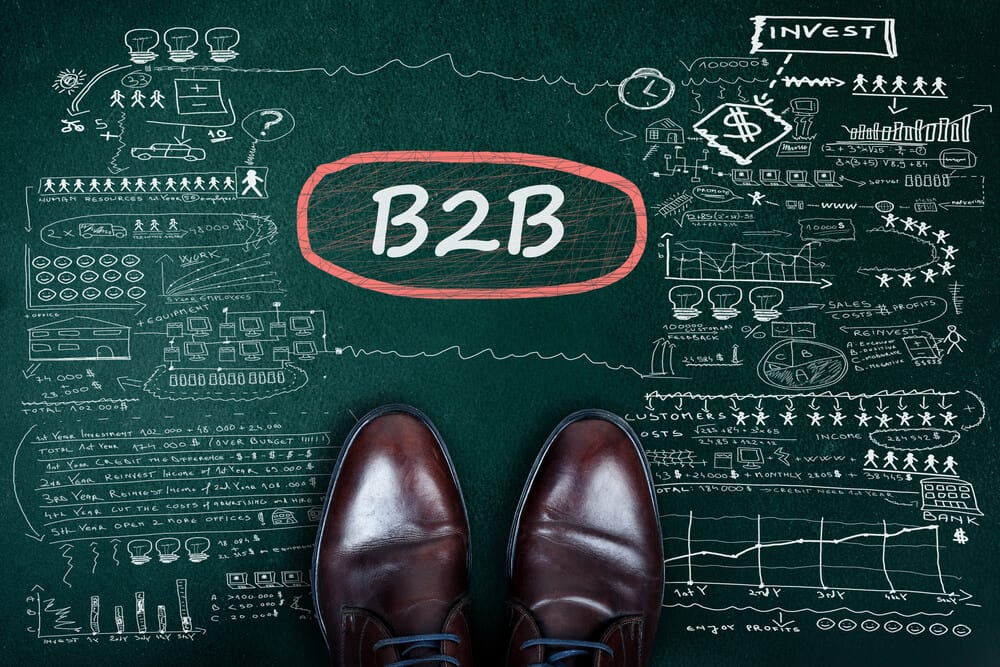The Internet of Things (IoT) is considered one of the technological innovations that will shape our future. It has already started to find itself in our day to day lives, from controlling the temperature within our homes through an app to fitness trackers. Its use is efficient, and its potential is nearly endless. However, it likewise poses as an excellent tool for future B2B marketing strategies that will help companies shoot for the next level of business.
Unknown to most, the majority of today’s devices connected to the IoT are not in our homes. They are mostly in factories, businesses, medical facilities, and many other institutions that require high productivity. An Intel study showed that more than 40% of devices can be found in the business and manufacturing sector. That means that B2B is already ahead of the pack and it’s crucial to start acknowledging the importance of IoT. It has a place in our world, be it our homes or our business, and it’s expected to grow to a whopping 200 billion connected devices by 2020.
It might soon become an absolute necessity for B2B marketing strategies.
A Fix for One of B2B’s Greatest Problems
The potential of the IoT stretches from better business processes to more opportunities for optimization. And one of the greatest things it can be used for in B2B transactions is timing. Timing is invaluable, and one of the key pieces to a successful business. The IoT easily fills that void by allowing companies to engage potential customers at the perfect time. They will have instant access to data they can further use to encourage follow-ups. The only requirement for this benefit is an excellent internet connection that they can count on, with high bandwidth. And in today’s digitized world, it has fortunately become the norm.
In addition, the IoT is the best way for a business to show its devotion if used as a marketing strategy to measure the life expectancy of a product or service. The use of smart devices that monitor equipment can send crucial information back to the supplier. With a prompt, the buyer will know precisely at the right moment when it’s time to replenish their stock or renew their subscription. Thus, the IoT has the potential of fixing one of the greatest errors in B2B marketing strategies, which is engaging buyers at the wrong time of the cycle. One step too early or too late, and the customer is lost.
A Strong Boost in Efficiency
A solid marketing strategy does not only promise a successful implementation but also efficient maintenance that will ensure operations run smoothly. The IoT is a cost-effective solution that will minimalize spending and the time the buyer waits for replenishment. It can have an incredible use when it comes to efficiency. It can save time and money, a pitch that could be a game changer for B2B marketing strategies.
Companies such as General Electric have found excellent uses for the new tech to monitor the performance and maintenance needs of their jet engines. With the use of sensors that collect data from their parts, the company can gain valuable information in real-time. In addition, they are making use of the IoT to even perform short bursts of repairs throughout the lifespan of an engine. That way, it cuts down on time spent in repairs in the future and the money wasted while one of their products is idle.
It’s an exquisite use that ultimately boosts their efficiency and, in turn, enhances the strength of their marketing strategies.
It’s the Next Stage of Customer Surveys
The world of business is rapidly integrating technological advancements to adapt to digitally empowered buyers, and the IoT is one of them. It’s important for B2B marketing strategies to note what other forms of client engagement they will replace. Customer surveys will be among them. The Internet of Things is a valuable tool in tracking a product’s performance, lifespan, and how buyers interact with it. While the traditional survey could tell companies basic information, the new tech springs with new opportunities.
It can share valuable details to the marketer, such as how the client likes the product, how are they using it, and how often do they need it replenished. The IoT presents vital advantages in terms of customer behavior, and it will ultimately change the way products get marketed, sold, and serviced. Even more importantly, it will tell B2B marketers how they can to improve them in the future. The IoT can merge the multitude of devices customers use and gather all their data in one place. From there, it can be analyzed, and proper adjustments can be made, outside of potentially skewed customer answers.
Faster and Better CRM
Large companies around the world, such as Amazon or Google, are at the top of the chain because they have a firm grip on data. They efficiently used it for the purpose of creating user profiles, which further aids in making and showing specific ads to certain people. The IoT of things is changing the way companies measure and manage customer relationships for one significant reason: it’s fast. Businesses using the innovative tech can use tremendous amounts of data to create a three-dimensional picture of their clients quickly.
It tracks the customer’s entire journey from the first click, so it will offer valuable data that can be used in future B2B marketing strategies. Companies around the world have started to find its use and implement the IoT to create a smoother customer experience.
The Internet of Things is important for B2B marketing strategies because of its tremendous potential and vast amounts of data it can gather. By using it, marketers can and will change the way they engage with customers, how they listen, and know precisely when and where to arrive with the right message.
Image source: depositphotos.com


